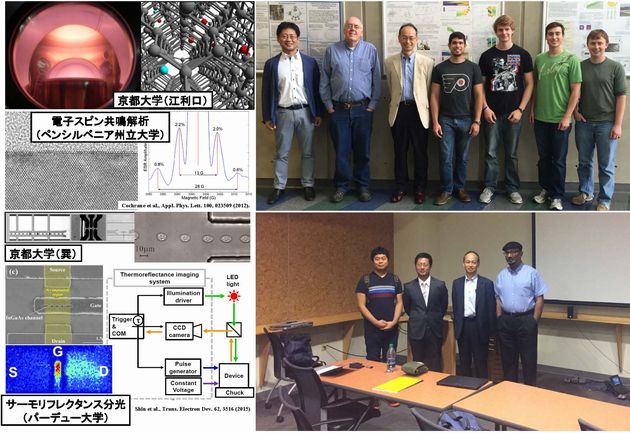Structuring international collaborative network for development of future reliability engineering physics on multi-phase interfaces and the physical system
Project Gist
Exploring multidisciplinary discussions on future reliability engineering physics at multi-phase interfaces by forming international collaborative network
Keywords
Reliability physics, Multi-phase interface, Defect, Design, Art
Background and Purpose
Multidisciplinary discussions are essential for the development of an innovative technology realizing a novel highly reliable device. In this project, we will extend multidisciplinary discussions on future reliability engineering physics at multi-phase interfaces by forming international collaborative network — academia, research institutes, and industries. Present-day advanced electronic devices in the nano-scale regimes are principally focused on and several key reliability issues (phenomena) are discussed. Specifically, we aim to introduce a characterization technique of atomic-scale defects — spin-based spectroscopy — and mathematical approaches for modeling the degradation of material reliability by the international collaborations. Biological and mechanical material-related issues in addition to medical engineering are included into the topics to clarify common reliability models and physics behind the mechanisms. By structuring a unique international network, we explore new reliability physics indispensable for designing future advanced devices.
Project Achievements
We have organized thirteen meetings including four forums where international (US) researchers — Prof. P. Lenahan of Penn. State University and Prof. M. Alam of Purdue University — were invited. Several domestic students joined one of the forums. The research fields of the project members have expanded the diversity, i.e., mechanical machining, material reliability, medical engineering, fluid mechanics, electronic devices, and art design. Prof. Tatsumi and I visited Penn. State University and Purdue University and have defined two preliminary collaborative topics for designing future highly reliable devices. One is a metrology for characterizing atomic-scale defects (spin-based spectroscopy, Penn. State University and electrical capacitance method, Kyoto University). The other is to understand and design the nano-scale heat transfer at the interface particularly for fluid-solid interface (thermo-reflectance imaging method and simulation employing the compact model with Purdue University).
Future Prospects
We had a fruitful discussion on the reliability characterization of advanced devices with the Aerospace Corporation, in addition to Penn. State University and Purdue University, for the respective purposes. Our milestones are placed along the international collaborations not only as publications but also as exchanging the students and staffs. Now we are seeking for a fund to support our future activity to define a new concept of multidisciplinary reliability physics.
Figure

Principal Investigator

・ERIGUCHI Koji
・Graduate School of Engineering
・He has been a professor of Kyoto University since 2016, working on plasma–solid surface interaction, particularly, the degradation of materials and devices in such harsh environments. Prior to joining Kyoto University in 2005, he had been a senior engineer at Panasonic from 1991.
http://www.propulsion.kuaero.kyoto-u.ac.jp/
